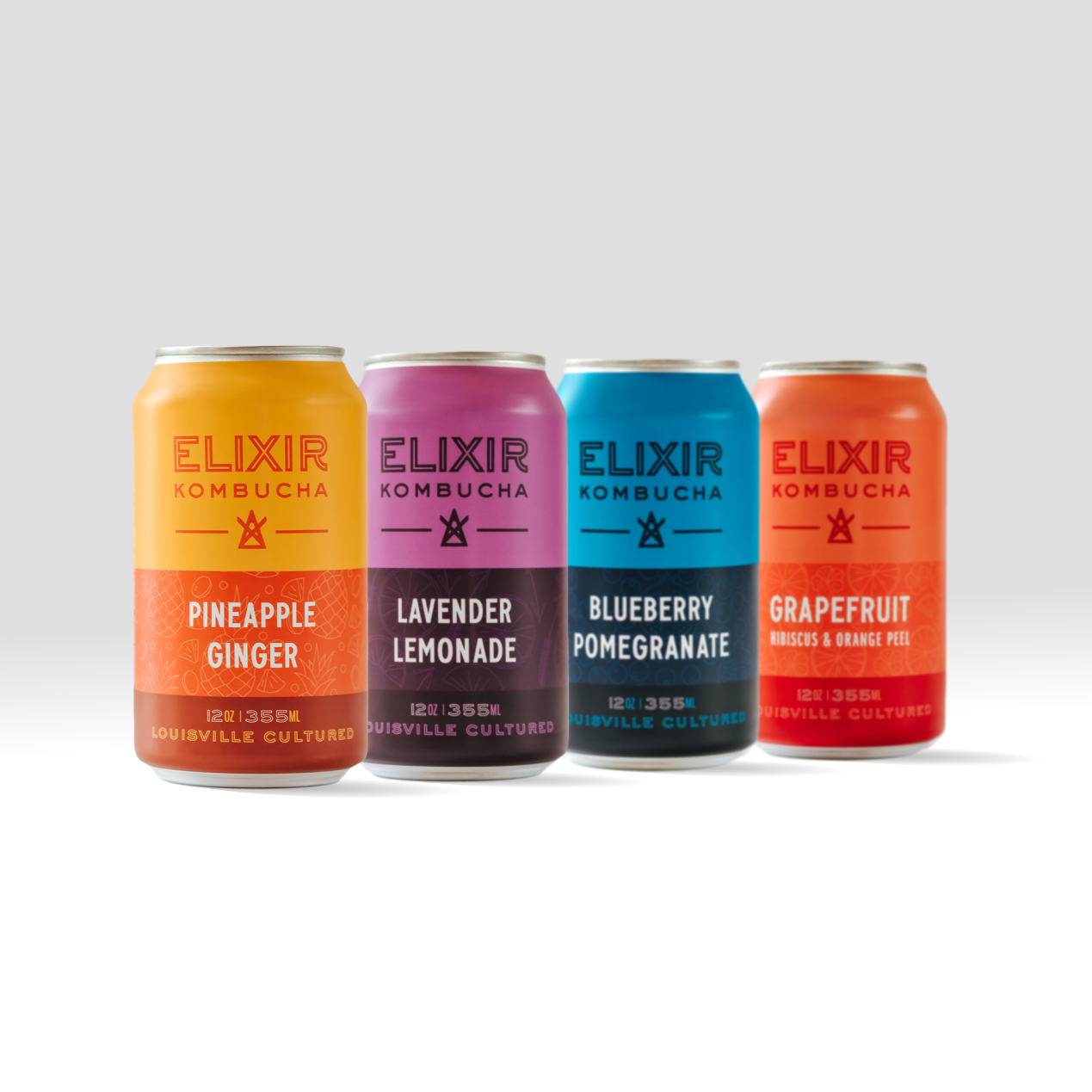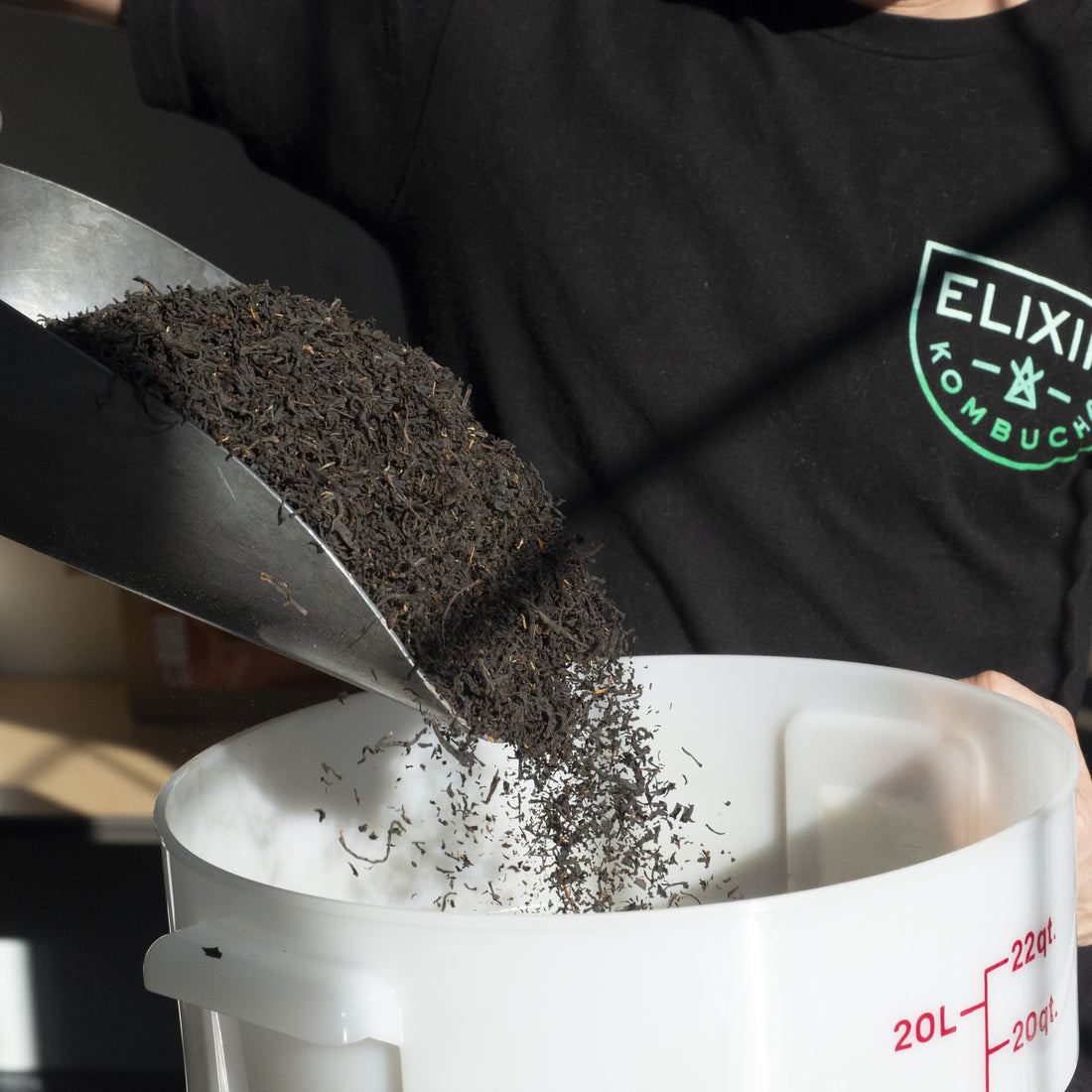What is kombucha?
Kombucha is a bubbly, probiotic beverage made with black or green tea, sugar, and a live culture of bacteria and yeast. It has a slightly sweet, slightly sour, effervescent taste and is often flavored with fruits, juices, or spices. Kombucha was originally known as the "Immortal Health Elixir" because its purported healing properties. It has been consumed for centuries in Asia and is now becoming increasingly popular in the West.
How is kombucha made?
Kombucha is made by fermenting a mixture of tea, sugar, and a symbiotic culture of bacteria and yeast (SCOBY). The SCOBY forms a pancake-shaped biofilm on the surface of the liquid during fermentation called a pellicle (this is often mistakenly referred to as the SCOBY itself). The bacteria and yeast in the SCOBY consume the sugar and caffeine in the tea and produce a profile of organic acids and carbon dioxide.
Origins of kombucha
The exact origins of kombucha are unknown, but it is thought to have originated in Northeast Asia over 2,000 years ago. Kombucha was first introduced to the West in the early 20th century and has become increasingly popular in recent years for its unique flavor and health benefits.
Health benefits of kombucha
Kombucha is often touted for its health benefits, with a focus on gut health. Kombucha contains probiotics, which are beneficial bacteria that live in the gut. Consuming fermented foods and beverages can increase the diversity in the gut, which improves overall gut health. And since gut health affects other bodily systems, increased diversity can improve digestion, absorption of nutrients and provide support for the immune system. Gut health has also been linked to mental health, as most of the body's serotonin is produced in the gut. This study even found a correlation between kombucha consumption and lower blood sugar.
Why is kombucha considered non-alcoholic?
Kombucha is considered non-alcoholic because it typically contains less than 0.5% alcohol by volume (ABV). This is because the bacteria and yeast in the SCOBY work together to convert most of the sugar and alcohol into organic acids and carbon dioxide during fermentation.
There is a growing trend of alcohol moderation (sober curiosity) as consumers become more aware of the consequences of alcohol consumption. Kombucha presents a top-notch alternative for people looking to moderate.
You have likely come across alcoholic - aka "hard - kombucha on the market (>4% ABV) - this kombucha is produced with various alternate methods, sometimes including the addition of alcohol from an outside source.
Conclusion
Kombucha is a delicious, mysterious beverage and a great source of probiotics and organic acids. As awareness of gut health increases and consumers seek non-alcoholic options, kombucha continues to find placement on retail shelves around the world.


